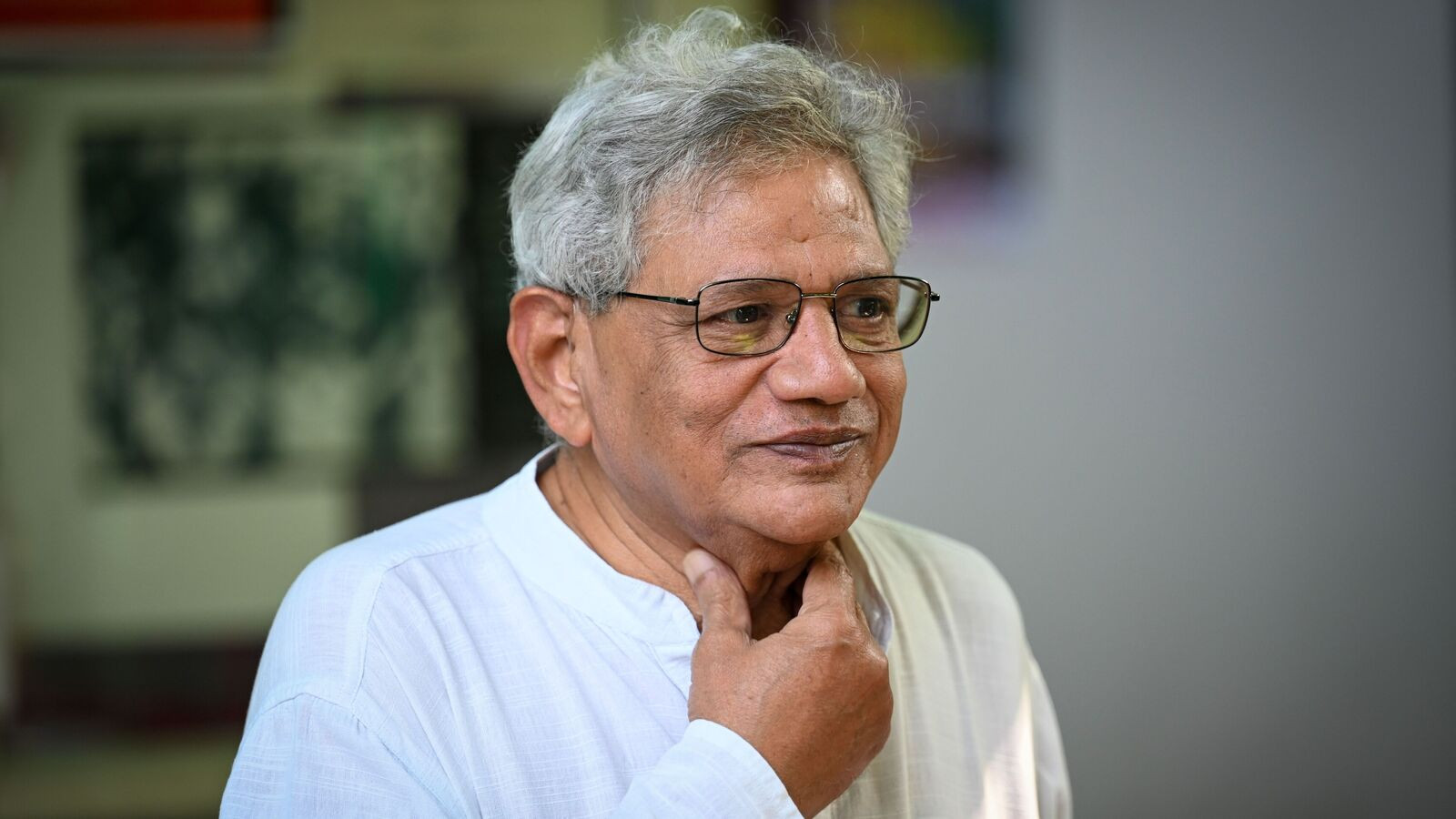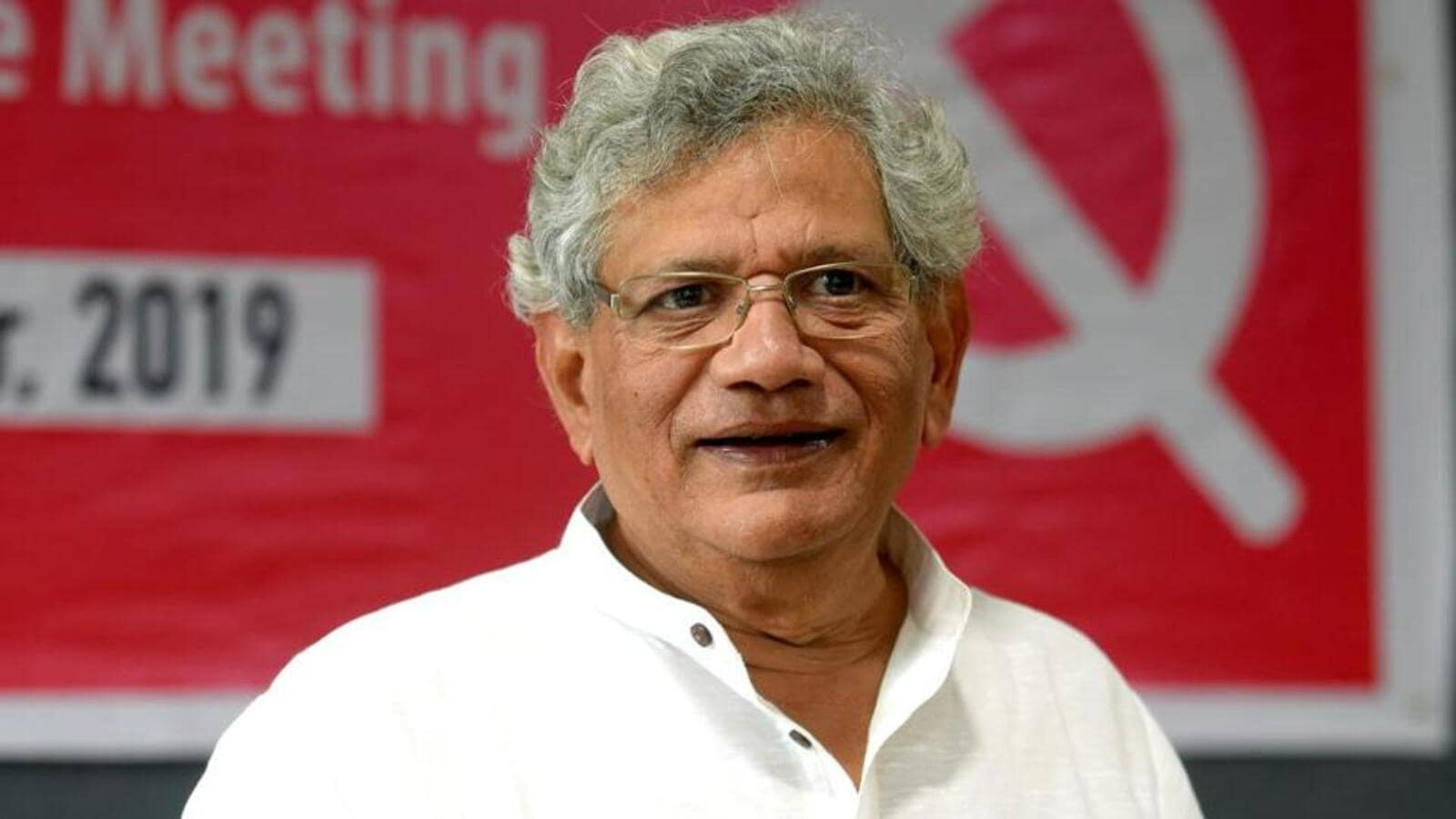Sitaram Yechury, the veteran Marxist and General Secretary of the Communist Party of India (Marxist), died on Thursday in New Delhi, leaving a profound gap in India’s secular political sphere. At a time when the country needs leaders with his integrity, commitment, and deep understanding of both national and international issues, his loss feels especially heavy.
His death, at the age of 72, comes at a moment of political uncertainty, not just for the Left but for the nation as a whole. Yechury’s steady and firm leadership was a beacon in troubled times, and his influence extended far beyond the limits of his party. He was a rare leader who could bridge ideological divides, give voice to the marginalized, and stand firmly against the rising tide of communalism and economic inequality.
Losing Yechury—a man of intellect, moral strength, and courage—marks more than just the passing of an era. His voice, which consistently championed justice, equality, and secularism, will be deeply missed, and his absence leaves the nation searching for the kind of principled leadership he exemplified.
A Master of Coalition Politics
Sitaram Yechury, as the fifth general secretary of the Communist Party of India (Marxist), assumed leadership at a time when the Left’s influence had shrunk. The party, which had once commanded 43 seats in Parliament, was reduced to just nine by the time he took charge in 2015. Yechury’s leadership, however, was marked by a pragmatic approach to coalition-building and his ability to keep the CPI(M) relevant in an increasingly polarized political environment.
Unlike his predecessors, Yechury was a master of coalition politics. His mentor, Harkishan Singh Surjeet, had pioneered this approach during the coalition eras of the National Front and United Front governments, and Yechury carried this legacy forward. During the UPA years from 2004 to 2014, he played a vital role in negotiating alliances, ensuring that the Left’s voice was heard in crucial policy discussions.
Yechury was one of those rare political figures whose intellect and pragmatism earned him respect across party lines. It was no surprise that in 2004, when Congress leader Sonia Gandhi decided to forgo the post of prime minister, Yechury was one of the first people she turned to for counsel. His ability to work with leaders like P. Chidambaram to draft the Common Minimum Programme for the United Front government showed his political astuteness and his dedication to promoting a secular, democratic vision for India.
Even during moments of disagreement, such as when the Left withdrew its support from the UPA over the Indo-US nuclear deal in 2008, Yechury remained a critical negotiator. His capacity to bridge divides, even in the most contentious of circumstances, demonstrated his deep commitment to the larger ideals of Indian democracy.
A Champion of the Marginalized
Yechury was renowned for his articulate and powerful speeches in Parliament, particularly in the Rajya Sabha. He consistently championed the cause of farmers, workers, and marginalized communities, while remaining a fierce critic of economic policies that he believed catered to the interests of multinational corporations at the expense of ordinary citizens.
One of his most vocal criticisms was aimed at the Modi government’s neoliberal policies, which he argued were widening economic inequalities. He was a staunch opponent of policies like demonetization and the Goods and Services Tax (GST), which he believed burdened the working class while favouring big businesses. His speeches were not just critiques; they were calls to action, rooted in a vision for a more just and equitable India.
A Leader for the Times
Yechury’s skills in coalition-building came to the forefront once again in the run-up to the 2024 general elections. Despite the CPI(M)’s reluctance to align with Congress in previous elections, the political scenario had shifted. Yechury played a crucial role in forging the INDIA bloc, a united opposition front aimed at countering the rise of the BJP. Though the CPI(M) and Congress fought separately in Kerala, the broader alliance saw the Left gain seats in Rajasthan and Tamil Nadu, highlighting Yechury’s ability to adapt and lead in difficult circumstances.
Yechury’s journey in politics began with the Students’ Federation of India (SFI) in 1974. His early education at Delhi’s St. Stephen’s College and later at Jawaharlal Nehru University shaped his keen understanding of national and international issues and his academic brilliance was evident early on. His rise within the CPI(M) was swift—by 1985, he was a member of the Central Committee, and by 1992, he had secured a place in the Politburo at just 40 years old. His political career, however, took precedence over his academic ambitions, especially after his arrest during the Emergency.
A Legacy of Principled Leadership
Yechury’s personal background also played a role in shaping his political ideology. Raised in a traditional Brahmin family, he grew up witnessing stark social inequalities. He often spoke of how he rejected Brahminical exclusivity, removing his sacred thread in a symbolic gesture of his commitment to the class and caste struggle. This deep understanding of India’s socio-political realities made him a leader who could effectively address the unique challenges posed by caste and economic exploitation in the country.
As the head of the CPI(M)’s international department and editor of People’s Democracy, Yechury was not just focused on domestic issues. He was deeply engaged with global movements for justice, peace, and equity. In his speeches and writings, Yechury was critical of what he saw as India’s growing alignment with the United States and its shift towards unipolarity. He argued for a return to India’s non-aligned stance, which had been a cornerstone of the country’s foreign policy during the Cold War. Yechury stressed the importance of maintaining good relations with neighbouring countries, criticizing India’s current approach towards Nepal, Bangladesh, Pakistan, and China. He argued that a US-Israel-India axis is not in India’s best interest and advocate for revisiting the nation’s foreign policy with a focus on multipolarity and independence.
Yechury was particularly vocal about the need to resist the growing defence ties with Israel, criticizing the Modi government for its support of Israeli policies in Palestine. He often pointed out that India’s historical support for Palestinian independence was being undermined by its current foreign policy direction. During a protest at Delhi’s Jantar Mantar in solidarity with Palestine, CPI(M) general secretary Sitaram Yechury denounced Israel’s offensive in Gaza, describing it as “not a war, but a genocide.” Yechury argued, “War is between two armies, both sides have weapons. Here, the attack is on unarmed people. This is unacceptable.”
Recalling his student days, Yechury noted that Indian passports once carried a restriction against travel to Israel and apartheid-era South Africa, reflecting India’s stance against such regimes. He further criticized the Modi government’s support for Israeli Prime Minister Netanyahu, stating, “The Modi government has come on its knees to support Netanyahu.” Yechury called on the global community to exert pressure on Israel to halt its offensive in Gaza. His commitment to a multipolar world order, where India would play a leading role in championing the causes of the global South, remained firm.
In his reflections on India’s political journey, Yechury often cited the rise of Hindu fundamentalism as one of the defining challenges of modern Indian politics. The destruction of the Babri Masjid in 1992, he argued, was a moment that reignited the communal tensions many had believed were buried with the assassination of Mahatma Gandhi. He saw the struggle between secularism and communalism as a continuation of the ideological battles that shaped India’s freedom movement.
For Yechury, the Congress vision of a secular democratic republic, the Left’s commitment to economic independence, and the Right’s push for a society defined by religious identity were the three competing visions that had shaped the nation’s politics. His role in combating the rise of communalism and his defense of India’s secular fabric were central to his political mission.
Yechury’s internationalism extended to his analysis of global conflicts. In a detailed analysis of the Russian invasion of Ukraine, he argued that military aggression, regardless of the provocations, was not the solution to geopolitical disputes. He called for an immediate ceasefire and a return to diplomatic negotiations, highlighting the long-term consequences of the conflict for Europe and the world. His critique of Putin’s revanchist ambitions and his warnings about the dangers of NATO expansion were characteristic of Yechury’s critical understanding of global affairs.
A Legacy of Principled Leadership
Sitaram Yechury’s life was marked by an unyielding dedication to justice, secularism, and equality. In a political arena often marked by shifting loyalties and compromises, Yechury stood firm, guided by his principles and firm commitment to a fair and inclusive society. He was not just a leader for the Left but a voice of conscience for the nation, consistently advocating for those who needed it most.
As India and the world confront increasing challenges, his absence will be deeply felt. His voice, known for its clarity and conviction, is irreplaceable in today’s times. His legacy will continue to inspire those who fight for justice and equality, reminding that true leadership is defined by integrity and the courage to stand up for what is right, even in difficult times.

















